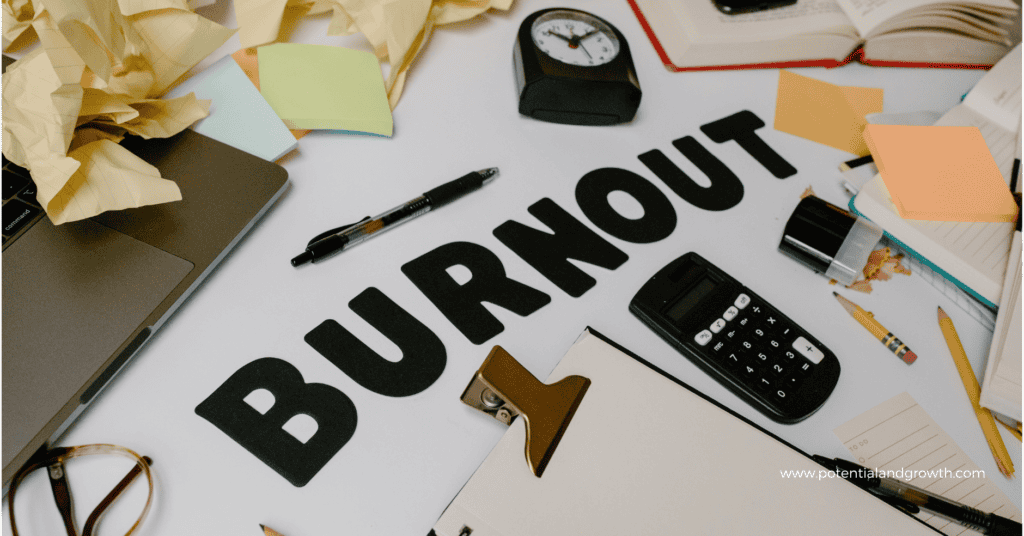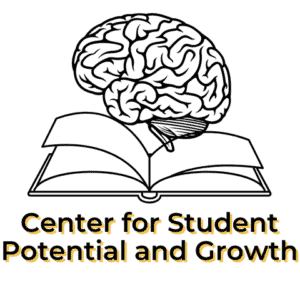
Understanding ADHD Burnout in Teens: What Every Parent Needs to Know
Burnout. We may not think about teens being burned out, but it happens, probably way more than you think. Burnout, in its traditional sense, is associated with the world of work, but school mimics work in a lot of ways. Expectations of meeting demands, the ability to stick with projects despite other things coming up, and relying on your resources to manage yourself, are things that students are required to navigate at school.
As a parent, you’ve likely had a time in your life where you felt completely overwhelmed with everything you had on your plate at that moment. You were likely beyond exhausted and feeling like you want to drop everything, curl into a ball, and wait the storm out.
Being burned out is not your typical level of stress. It’s stress you’ve been dealing with for a long time, seemingly without any possibility of change. Your teen may not have the words to express what they are experiencing, so you’ll need to keep watch for changes in their behavior or functioning.
In this article, we will highlight the importance of recognizing early signs of burnout with your teen, ways to help your teen prevent burnout, and what to do if your teen is feeling burned and needs more support.
Why Teens with ADHD Are More Prone to Burnout
Let’s break down how burnout can occur specifically, with ADHD.
Burnout in teens with ADHD is a real challenge they face surrounding school and social demands. Specifically, academic burnout is a common issue for teens with ADHD. There are three main areas affected by ADHD that your teen is expected to regulate: cognition, behavior, and emotions. We know that ADHD can tax these three areas and when our regulation systems are overextended for too long, burnout can happen.

Cognitive regulation is the ability to manage our brain energy and solve problems effectively. Burnout can occur at this level due to school work that is constantly challenging. For example, your teen might have teachers that give tests all on the same day every two weeks. But now, your teen is playing sports and is in a club, so they have more to keep up and less time to do it.
A teen with ADHD might have the ability to manage one of these demands just barely, but now because they added sports and a club, they are completely overwhelmed. The amount of problems they have to solve and think about has exceeded their capacity and they don’t have a plan for how to keep up. Your teen may experience mental fatigue, which impacts what they do and how they do it.
Behavior regulation is the ability to manage and monitor our behavior effectively. Like in the example above, burnout can occur at this level when your teen has to review their failed test or performance in a game and make changes to pass the next test or score more during the next game. This level requires your teen to engage in self-reflection and stop a previous behavior in favor of a new one.
Often at this stage, the feedback your teen gets comes from you, their teacher, or the coach. So, they need to be able to listen to feedback, think about integrating it into their daily actions, and then plan to change their behavior based on feedback Whew! That can be a lot for a teen to do if they have a hard time changing their behavior, much less noticing it needs to change.
The feedback they get from others may cause them to disengage in their activities or shut down because they are inundated with people telling them they need to do something different. This leads me to my next point about managing emotions.

Emotional regulation is the ability to manage our emotions in response to changes in our environment, situations, plans. We can absolutely understand how having too much on our plate leads to feeling fatigued and burned out. Now increase that factor by 5-10x for a teen with ADHD. Because ADHD impacts your teens emotional responses, usually by increasing the intensity of strong emotions, they likely are having a harder time managing their reactions to events.
This area goes hand in hand with cognitive regulation. If your teen is feeling overwhelmed emotionally, it will impact their problem solving skills and ability to plan. The more behind they fall due to failed planning, the more emotionally overwhelmed they become, and the cycle continues. Burnout occurs when the demands continually outpace skill and resources.
Emotional regulation is especially sensitive to burnout in ADHD if your teen doesn’t have a strong supportive social network at home (due to parent burnout) or school (due to strained relationships). Increases in emotional dysregulation is more noticeable as an indicator of burnout compared to the other two areas.
I’m going to share signs to look out for in your teen who may be experiencing burnout.
10 Signs Your Teen with ADHD Might Be Experiencing Burnout

This is not an exhaustive list, but here are symptoms of teen burnout your child may be displaying. Also, you may consider if you notice any of these starting to emerge, burnout may be on the horizon. Please look at this list and take notice if you see any of these issues happening with your teen.
1. Increased irritability or emotional outbursts.
You may notice your teen is more moody or reactive than normal. This can happen at school and home.
2. Decline in school performance or avoidance of tasks.
Your teen’s grades may start to slip or they might start avoiding certain classes or assignments. This can include challenges in classes you know they like and excel in.
3. Constant exhaustion, even after rest.
Waking up tired, even after a full night’s rest.
4. Loss of interest in hobbies or activities they used to enjoy.
Your teen loves playing basketball or video games, but they barely do things they enjoy now. Apathy can be a sign of burnout and leads to decreased motivation and physical activity.
5. Trouble focusing more than usual.
ADHD presents unique challenges with your teens ability to focus, but with the added stress, may have more difficulty than normal. They may struggle to remember their thought mid sentence or you may see them staring off more.
6. Physical symptoms like headaches or stomach aches.
Somatic complaints may start or increase with burnout. Chronic stress shows up in our bodies due to changes in body chemistry and hormones.
7. Isolation from friends and family.
Your teen may start to withdraw and choose to spend more time alone if they are experiencing burnout. This may be due to low energy or because they don’t feel like themselves.
8. Feeling overwhelmed by small tasks.
Your teen may fall apart doing things you know they have mastered in the past, but now feels like too much. Requests for your teen to complete chores or routine tasks may be met with a strong emotional reaction.
9. Negative self-talk or low self-esteem.
If you notice your teen starting to engage in self-deprecating talk, it could be due to the stress of feeling like they can’t meet the demands expected of them. You might see them begin to avoid opportunities they felt confident about before because they feel like they can’t measure up.
10. Difficulty sleeping or excessive sleeping.
Just like feelings of increased exhaustion, mental busyness can lead to your teen having a hard time getting to sleep. Your teen may sleep more to avoid dealing with the increased demands they are trying to manage at this time.
Practical Strategies for Helping Your Burned-Out Teen

To tackle burnout, you will need to play detective to figure out what combination of factors may cause your teen to feel stressed.
Sometimes the fix is simple, such as helping them to adjust their schedule to include a study hall during the day to get caught up on work if they play sports.
Other times, it may be more involved such as looking at their coursework to see if the demands are reasonable and requesting a class change or setting them up with support at school.
I’m including a few other things you can try out to help your teen avoid burnout or reduce it, if they are already burned out.
Encourage Regular Breaks
Teach your teen the importance of rest and how to pace themselves. That might mean letting go of activities so they can have more downtime to recharge.
Help Them Prioritize Tasks
Use tools like alarms on their phone or digital apps to reduce overwhelm. You may need to try a few tools out to find one that fits your teens unique level of planning and organization.
Support Emotional Regulation
Introduce mindfulness techniques or coping strategies. As a yogi, I truly believe yoga can help almost anything, but showing them different ways to control their emotions just by changing their breathing is so powerful.
Address Perfectionism
If you have a teen who struggles with perfectionism, reassure your teen that “good enough” is often enough. To look at it another way, help them focus on the top two areas they find most important and dial in there. By doing this, you are not encouraging them to forget about the other things, but helping them see they can’t go 100% in all areas, all the time because they could exhaust themselves.
Model Self-Care
Show them the importance of prioritizing mental health by doing it yourself. Tell them about a time when you were overwhelmed and feeling burnt out. Share things you did to give yourself time to recover and how you maintain expectations so you avoid getting burned out in the future.
Create an Open Dialogue
Make sure your teen feels heard and supported. As much as they are willing to let you, allow them the space to vent their frustrations. I am amazed at how we forget what it was like to be a teen and sometimes minimize their stressors because they are different from ours. Give them space to express how they feel and see how they may be perceiving things going on in their lives.
Knowing When Your Teen Needs Extra Support for ADHD Burnout

If you notice your teen showing the signs listed above for an extended period of time and to a degree that is causing them to start avoiding school, completely withdrawing from their friends, or you notice signs of depression or anxiety, reach out to a professional for support.
Finding a provider that understands the unique challenges ADHD presents when coupled with changes in mental health needs is important.
A provider who specializes in ADHD focused therapy and parent training can help you understand the strategies and tools that are more likely to be effective rather than trying traditional methods that tend not to work.
Supporting Your Teen Through ADHD Burnout
Burnout is more common for teens with ADHD than we may think, but with the right support can be overcome.
I encourage you to seek intervention before symptoms increase in both intensity and number, which can cause impairment across settings that takes longer to improve.
At the Center for Student Potential and Growth, we are providers who understand the uniqueness of ADHD, are parents of teens with ADHD, and have worked with students and families like yours who are impacted by ADHD.
Reach out to learn more about our approach and to book a session for your teen today. We look forward to working with you and your family.
